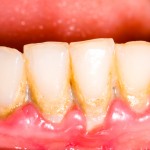
Diabetes mellitus (DM) is a chronic metabolic disease resulting from the body’s failure either to produce the insulin or to effectively use its production. The global prevalence of DM is increasing with just over 10% of adults aged between 20-79 affected in 2021 with an increase to just over 12% by 2045. A key element of DM management is glycaemic control with an absolute reduction of 1% in haemoglobin A1c (HbA1c) being associated with a relative risk reduction of 21% for any diabetes-related endpoint. Periodontal disease is common affecting up to 50% of adults with poorly controlled diabetes being a recognised risk factor. Several studies have been published suggesting a bidirectional relationship between glycaemic levels and periodontitis
The aim of this Cochrane review update was to assess the effects of periodontal treatment on glycaemic control in people with diabetes mellitus and periodontitis.
Methods
Searches were conducted in the Cochrane Oral Health’s Trials Register, Cochrane Central Register of Controlled Trials (CENTRAL), Medline, Embase, CINAHL (Cumulative Index to Nursing and Allied Health Literature) Web of Science, ZETOC, ClinicalTrials.gov and the World Health Organization International Clinical Trials Registry Platform. At least two reviews independently examined the titles and abstracts retrieved by the search, selected the included trials, extracted data from included trials, and assessed included trials for risk of bias. Randomised controlled trials (RCTs) comparing any professionally delivered intervention designed to reduce periodontitis against no (or delayed) treatment or usual care (oral hygiene instruction (OHI) or supragingival scaling with or without OHI) were considered. Split-mouth studies, cross-over studies and those with less than 90 days follow-up were excluded. The primary outcome was glycaemic control measured by HbA1c while secondary outcomes included adverse effects, periodontal indices (bleeding on probing, clinical attachment level, gingival index, plaque index, and probing pocket depth), quality of life, cost implications, and diabetic complications. Continuous outcomes were presented as mean difference (MD) with 95% confidence interval (CI) where studies used the same scale and as standardised mean difference (SMD) with 95%CI where different scales were used.
Results
- 35 RCTs involving 3249 patients were included.
- 34 studies involved patients with type 2 diabetes
- Most studies were conducted in secondary care with follow- up periods ranging from 3 to 12 months.
- 14 studies were considered to have a high risk of bias, two studies a low risk with 19 studies having an unclear risk of bias.
- There was moderate certainty evidence for an absolute reduction in HbA1c 3 to 4 months after treatment of periodontitis. Reductions were also seen at 6 and 12 months (see table).
| Follow-up | No. of studies (patients) | Reduction in HbA1c (95%CI) | |
| Percentage of total haemoglobin | Millimoles per mole (mmol/mol) | ||
| 3 – 4 months | 30 (2443) | -0.43% (-0.59 to -0.28) | -4.7mmol/mol (-6.4 to -3.0) |
| 6 months | 12(1457) | -0.30% (-0.52 to -0.08) | -3.3 mmol/mol (-5.7 to -0.9) |
| 12 months | 1 (264) | -0.50% (-0.55 to -0.45) | -5.4 mmol/mol (-6.0 to -4.9) |
- Adverse effects of periodontal treatments were not evaluated in most studies. Studies measuring adverse effects generally reported that no or only mild harms.
- No studies reported on cost implications or diabetic complications.
Conclusions
The authors concluded: –
Our 2022 update of this review has doubled the number of included studies and participants, which has led to a change in our conclusions about the primary outcome of glycaemic control and in our level of certainty in this conclusion. We now have moderate‐certainty evidence that periodontal treatment using subgingival instrumentation improves glycaemic control in people with both periodontitis and diabetes by a clinically significant amount when compared to no treatment or usual care. Further trials evaluating periodontal treatment versus no treatment/usual care are unlikely to change the overall conclusion reached in this review.
Comments
This Cochrane review updates the 2015 version (Dental Elf -11th Nov 2015) which concluded,
There is low quality evidence that the treatment of periodontal disease by SRP does improve glycaemic control in people with diabetes, with a mean percentage reduction in HbA1c of 0.29% at 3-4 months; however, there is insufficient evidence to demonstrate that this is maintained after 4 months.
So, it is important to highlight that the conclusions have changed as newer studies have increased our certainty in the evidence that treating periodontal disease in diabetics improved glycaemic control to moderate. There is also an indication of benefit beyond 4 months. There is however the possibility that benefits may be overestimated because of a potential Hawthorne effect as patients may monitor their blood sugars and take better care of their health by complying with their medication more than they normally would while participating in trials. A brief economic commentary (BEC) was undertaken by one of the authors as none of the included studies included any information on cost implications. The BEC commentary was based on 4 studies, 2 of which were decision analysis models, suggests that non-surgical periodontal treatment may be a cost effective use of resources for patients with type II diabetes and periodontitis. However, there are a number of areas of uncertainty.
Links
Primary Paper
Simpson TC, Clarkson JE, Worthington HV, MacDonald L, Weldon JC, Needleman I, Iheozor-Ejiofor Z, Wild SH, Qureshi A, Walker A, Patel VA, Boyers D, Twigg J. Treatment of periodontitis for glycaemic control in people with diabetes mellitus. Cochrane Database Syst Rev. 2022 Apr 14;4(4):CD004714. doi: 10.1002/14651858.CD004714.pub4. PMID: 35420698; PMCID: PMC9009294.
Other references
Cochrane Oral Health Blog – Does treatment for gum disease help people with diabetes control their blood sugar levels?
Dental Elf – 11th Nov 2015
Low quality evidence that periodontal treatment improves glycaemic control in diabetics
